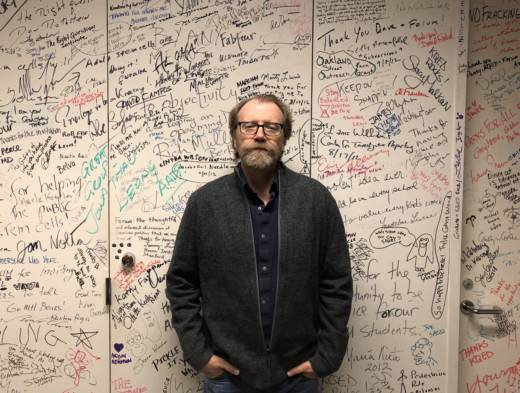George Saunders is an award-winning writer of short stories, essays, novels and children's books. His latest work is the 2017 Man Booker award-winning novel, "Lincoln in the Bardo," which is set in a graveyard at the outset of the Civil War. The novel, Saunders' first, centers on Abraham Lincoln as he grieves for his son Willie, who died of typhoid when he was 11 years old.
The audio book for "Lincoln in the Bardo" features an ensemble cast of more than 150 people, including Nick Offerman, Julianne Moore, Keegan-Michael Key and Saunders himself.
When you're writing, are you imaging how the voices will sound when you hear them?
Yeah that's exactly how it is. In the back of my throat I can, you know, hear them. And I think that comes from when I was a kid in Chicago. That was one way you could get some credibility if you weren't an athlete, which I wasn't, or if you weren't so popular, which I wasn't. If you can imitate a teacher -- or, the high watermark was if you could just invent a totally new guy, you know like, "Dan from the River" or something.
So it was just for fun and for some status, and then many years later, after many years of me trying to be more of a literary writer, it clicked that that was actually how I could do it. You know, I could just literally just settle into that mode of trying to invent a voice, and then write along the way. So -- very much voice driven, for sure.

